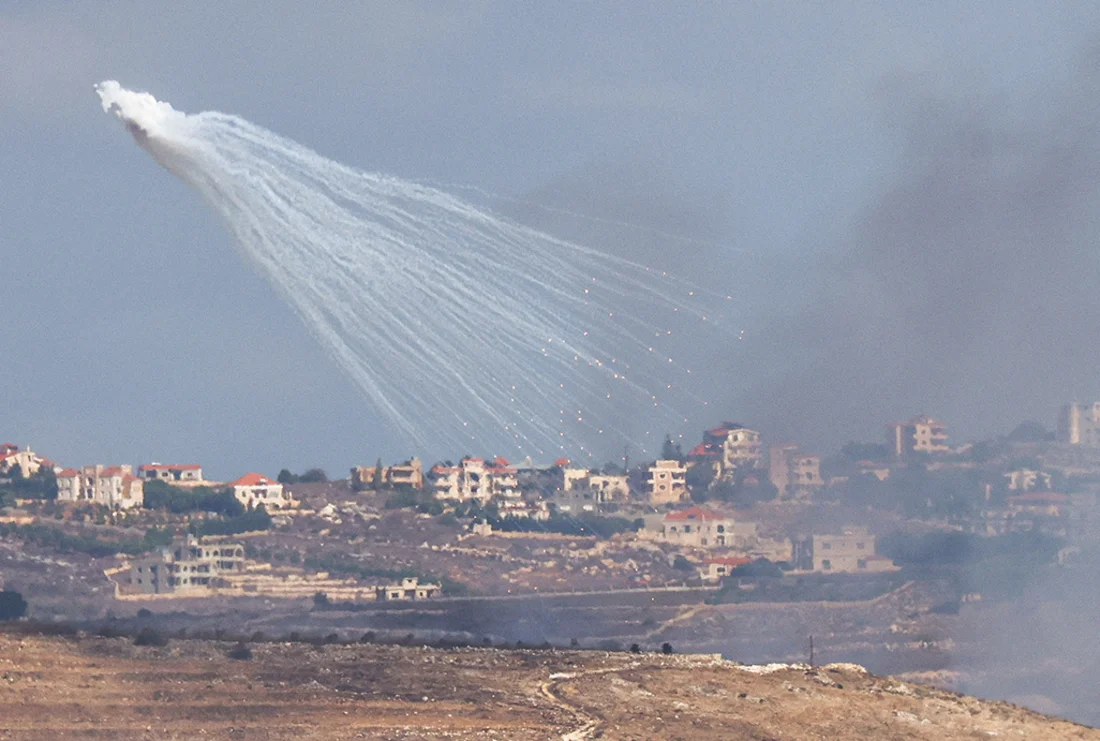The Israeli military announced on Wednesday that it was deploying regular infantry and armored units in its operations in Lebanon, increasing pressure on Hezbollah as it prepared to retaliate against recent Iranian missile strikes.
While already engaged in conflict with Hamas in Gaza, Israel is bolstering its presence in southern Lebanon following an attack by Iran, which has raised concerns of a broader conflict in the Middle East, a vital region for global oil production.
On Wednesday, Iran stated that its large-scale missile attack on Israel was intended to cease unless further provoked, but both Israel and the United States vowed to respond.
Meanwhile, fighting continued along the Israeli-Lebanese border, with the Israeli military deploying infantry and armored units from the 36th Division, including the Golani Brigade, the 188th Armored Brigade, and the 6th Infantry Brigade. This move indicates that the military operation could expand beyond the limited commando raids conducted previously. The Israeli military emphasized that the primary focus of its incursion was to dismantle tunnels and other infrastructure along the border, with no immediate plans to target major cities like Beirut.
The military also issued new evacuation orders for several towns along Israel’s southern border.
BORDER CLASHES
Despite international calls for a ceasefire from the United Nations, the United States, and the European Union, hostilities between Israel and Hezbollah have persisted. On Wednesday, Hezbollah claimed to be engaged in fighting with Israeli forces in the border town of Maroun el-Ras and launched rocket attacks on Israeli military posts. Hezbollah’s media chief, Mohammad Afif, declared these clashes as only “the first round,” asserting the group’s readiness for continued conflict.
Israel resumed its airstrikes on Wednesday, targeting Hezbollah positions in southern Beirut, an area known to be a stronghold of the Iranian-backed group. Lebanon’s telecommunications minister, Johnny Corm, reported the destruction of a cellular transmission tower during the strikes.
According to Lebanese government statistics, nearly 1,900 people have been killed and over 9,000 wounded in Lebanon after nearly a year of cross-border fighting, with the worst casualties occurring in the past two weeks. More than a million people have been displaced from their homes, seeking refuge in places like churches, as Malika Joumaa from Sudan shared, recounting how her family had to shelter at Saint Joseph’s Church after fleeing their home near Sidon.
FEARS OF ESCALATION
Iran’s attack on Tuesday, which it described as retaliation for the killings of Hezbollah and Hamas leaders, has heightened fears of further violence. Iranian officials linked the missile strikes to Israel’s previous targeting of Hezbollah’s leader, Hassan Nasrallah, and Hamas leader Ismail Haniyeh, who was assassinated in Tehran in July, an act widely attributed to Israel.
Iran’s Revolutionary Guards also launched a cyber operation alongside the missile strikes, claiming that their attack successfully hit three Israeli military bases. While damage was minimal, with one reported Palestinian fatality, Iranian officials warned that any Israeli retaliation would lead to “vast destruction” of Israeli infrastructure.
The U.S. news outlet Axios reported that Israel’s potential retaliation might target Iranian oil facilities and other strategic locations. This possibility has caused concern within Iran, with many expressing fear that renewed conflict would only lead to more suffering, echoing memories of the devastating Iran-Iraq war in the 1980s.
Global reactions have varied, with China urging international powers to prevent escalation, while Saudi Arabia has called for de-escalation and dialogue. Egypt’s cabinet condemned the violence and rejected any changes on the ground that would undermine Lebanese sovereignty.
Meanwhile, the United States pledged to work with Israel to ensure Iran faced “severe consequences” for its missile strikes. Israeli Rear Admiral Daniel Hagari stated that Israel’s air defenses, supported by a U.S.-led coalition, successfully intercepted most of the missiles fired by Iran.


